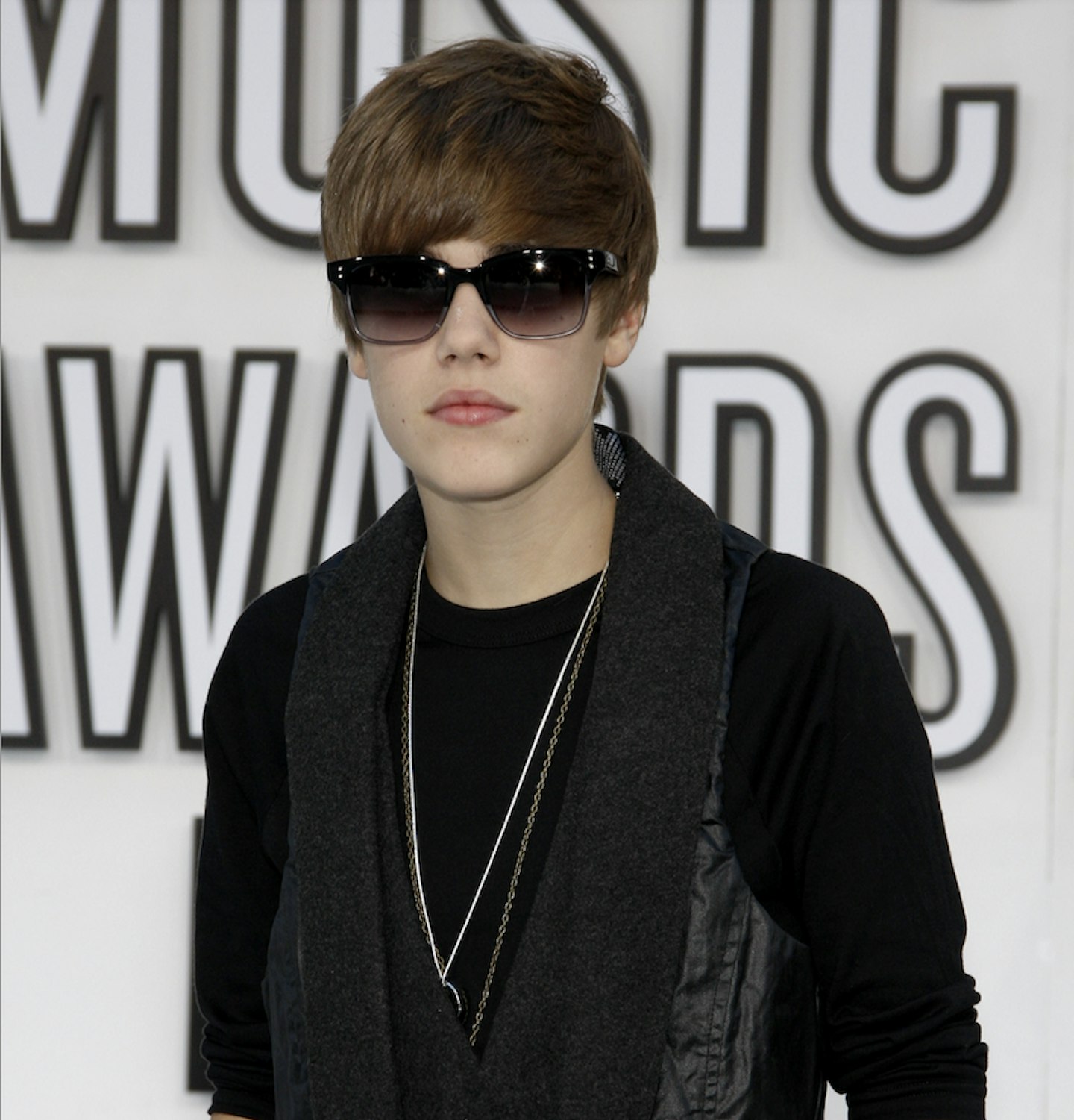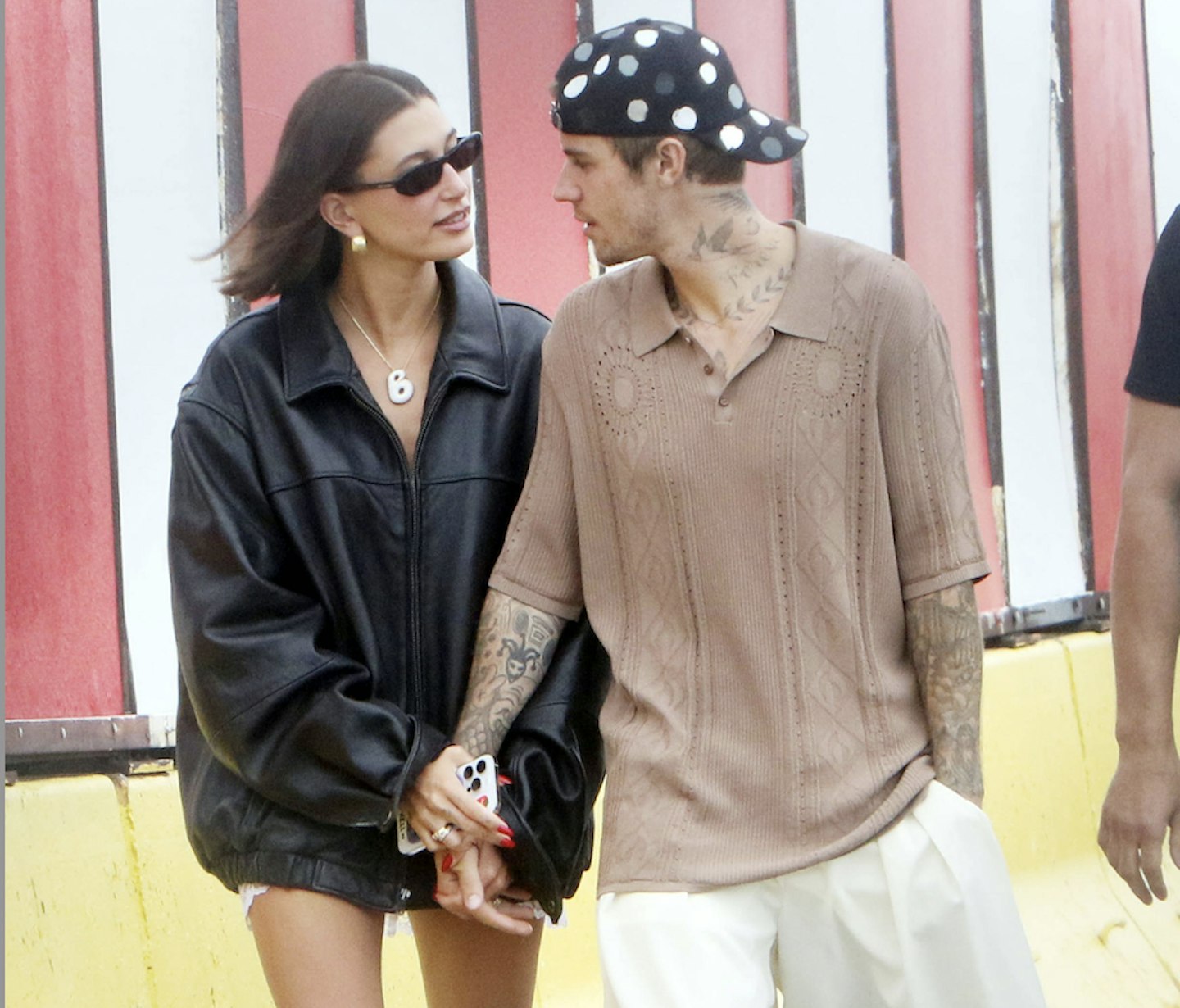There’s child stardom, then there’s Justin Bieber. His has been a household name for so long that it’s easy to forget that Bieber – who was discovered by Scooter Braun in 2007, when he was 13-years-old – is only 30. It’s even easier to forget the way he was treated during the first decade of his career. Perhaps it’s time to remember.
After being signed to Braun and Usher’s label RBMG records in 2008, Bieber released his first EP ‘My World’ in 2009. By 2010 his single ‘Baby’ had become one of the best-selling singles of all time. In 2011, Time named him one of the 100 most influential people in the world. He is estimated to have sold more than 150 million records worldwide since then.
While his innate musical talent speaks for itself (just watch the YouTube video of him playing the drums as a two-year-old), his ascent to fame was astronomical – and was in no small part due to his status as a teen idol.

‘Beliebers’, as his fans came to be known, quickly became one of the largest fan bases in the world – with a baby-faced Bieber hounded by teenage girls everywhere he went.
The trouble with being an idol is that it can strip you of your humanity and encourage people to treat you as an object of their desire and admiration instead. Like many female stars before him including Britney Spears, Natalie Portman, Lindsay Lohan and Mila Kunis, Bieber was hyper-sexualised from a young age and treated – by fans, contemporaries and the media – as a seasoned celebrity rather than a child. In recent years we have collectively been taking stock and accountability for the toxic ways female stars like Spears and Amy Winehouse, for example, were treated by the public and the media. It is becoming apparent that the world owes Justin Bieber an apology too.
Some video clips have recently come to light which show just how inappropriate a lot of the behaviour towards Bieber was, particularly when he first found fame. When he was 15 years old, he was probed about his sex life on the radio by an older female presenter and asked, ‘Why don’t you give me the sex talk?’. Bieber responded, ‘I feel uncomfortable right now. Why do you want to know the sex talk from a 15-year-old boy? That’s pretty weird.’ A year later at the Brit Awards in 2011, host James Corden said, ‘You smell amazing! How old are you?’ before stroking the singer’s face live on TV. A few weeks later, Bieber appeared on The Talk chat show and was asked, ‘Would you rather be naked on stage during one full song or drink a cup of blended worms?’.
In 2012, a 27-year-old Katy Perry squeezed 18-year-old Bieber’s bum at Capital’s Summertime Ball. That same year, at the American Music Awards, comedian Jenny McCarthy, 22 years Bieber’s senior, also grabbed his bum on stage and started kissing his neck. The singer said, ‘Wow I feel violated.’ After the show McCarthy joked, ‘I did grab his butt. I’m single. It was just so delicious. He’s so little. I just want to tear his head off and eat it.’

Alarmingly, these are incidents that largely bypassed our collective consciousness at the time – he was young, rich and famous, meaning he was fair game (just as so many young women in the spotlight were considered to be). As one offs, at a push, one of those incidents might be excused as a gag. But pieced together they are evidence of a toxic, inappropriate and harmful culture in the noughties and 2010s where dehumanising teen stars and turning them into sex objects was not only normalised but seen as entertainment. Bieber was ubiquitous – but should that have meant that everyone was entitled to him in whichever way they saw fit?
Unsurprisingly, Bieber has suffered an immense psychological toll from his fame, and the dark experiences it has sparked. In 2020, on his YouTube series The Dark Season, the singer admitted to becoming addicted to taking pills and smoking cannabis when he was just 13 years old. He later revealed that at his lowest point, he feared his dependence on drugs would kill him.
In 2014, he was arrested and charged with drunk driving, resisting arrest and driving without a valid licence. Speaking about this period on Instagram in 2019, he wrote, ‘By 20, I made every bad decision you could have thought of and went from one of the most loved and adored people in the world to the most ridiculed, judged and hated person in the world.
‘I started doing pretty heavy drugs at 19 and abused all of my relationships. I became resentful, disrespectful to women, and angry. I became distant to everyone who loved me, and I was hiding behind a shell of a person that I had become.’
The truth is, as we have seen time and time again with stars who found fame as young men or women, we were all privy to the deterioration of his mental health and the unimaginable nature of his celebrity, then tore him apart when he made poor choices.
He admitted in his 2019 caption, ‘It’s hard to get out of bed in the morning with the right attitude when you are overwhelmed with your life’ and said, ‘sometimes it can even get to the point where you don’t even want to live anymore’.
It seems like Bieber has become cognisant of the damaging effects specifically of child fame in recent years and has, unsurprisingly, taken a noticeable step back from the limelight. Preferring to live quietly with his wife Hailey Bieber and their son Jack who was born in August.
In his post he went on to ask, ‘Have you noticed the statistics of child stars and the outcome of their life? There is an insane pressure and responsibility put on a child’s brain,’ adding that, ‘emotions, frontal lobes (decision making) aren’t developed yet. […] But when you add the pressure of stardom it does something to you that is quite unexplainable.
‘I went from a 13-year-old boy from a small town to being praised left and right by the world with millions saying how much they loved me.’
Nearly ten years ago, he appeared on The Bert Show and said, ‘Being young and innocent in this industry is not necessarily the best thing because people take advantage of your vulnerability.’ Sadly, he was right. Let’s hope for the next Justin Bieber’s sake, we collectively learn from our mistakes.
Nikki Peach is news and entertainment writer at Grazia UK, working across pop culture, TV and current affairs. She has also written for the i, i-D and the New Statesman Media Group and covers all things TV for Grazia (treating high and lowbrow shows with equal respect).
